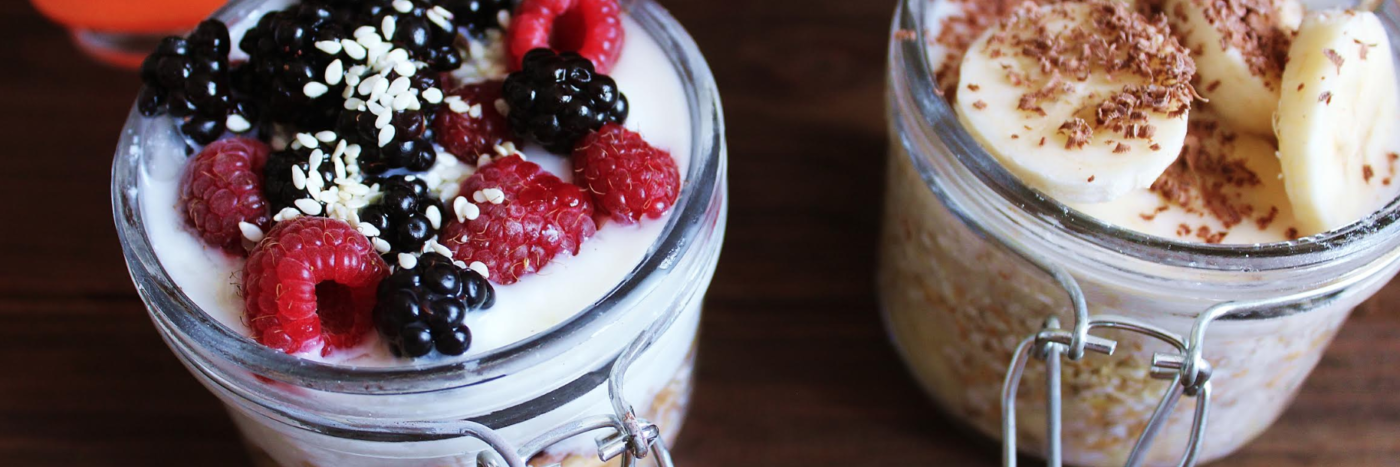
Our digestive tract is lined with trillions of bacteria called the gut flora or gut microbiota. In fact, there are more bacteria in our digestive tract than there are human cells. But, don’t worry, the majority of these bacteria are “good” or “friendly” and they play an important role in keeping us healthy. We call these “good” bacteria: probiotics. The role probiotics play in keeping us healthy is no small feat—they help us to digest food, synthesize vitamins and maintain a strong immune system. They also help to keep any “bad” bacteria—like yeast or fungi—in check by obstructing the growth of these micro-organisms. In other words, probiotics are our friends! They help us to feel vibrant and keep our bodies healthy.
Bottom line: We always want to have more “good” bacteria than “bad” bacteria in our digestive tract if we want to feel good and keep ourselves healthy.
So, how do we maintain a healthy dose of this “good” bacteria in our guts? Here are my top tips:
Eat 1-2 Servings of Probiotic-Rich Foods Per Day
In order to maintain high levels of probiotics in the digestive tract, they need to be eaten regularly. General recommendations are to ingest 1 to 25 billion colony-forming units (CFUs) daily. But what does that even mean? To put this into perspective, a serving of most store-bought yogurts contain about 1 billion CFUs. A serving of most store-bought kefirs contain about 15-20 billion CFUs. To get the maximum benefit from probiotic-containing foods, it’s important to read the label and chose only those products that contain “active, live cultures.” Such as:
- Fermented vegetables
- Kefir
- Kimchi
- Kombucha
- Miso
- Natto
- Pickled Vegetables (raw)
- Sauerkraut
- Tempeh
- Yogurt (plain, no added sugar, with active cultures)
Eat Prebiotic Foods Every Day
What are prebiotics? Prebiotics are food for probiotics. They are fiber-rich foods that help probiotics grow and multiply. Eating prebiotic foods each day helps to ensure that the “good” bacteria in your gut are nourished and healthy so you, in turn, can be nourished and healthy. These include:
- Asparagus
- Banana
- Dandelion greens
- Eggplant
- Endive
- Garlic
- Honey
- Jerusalem artichokes
- Jicama
- Kefir
- Leeks
- Legumes
- Onions
- Peas
- Radicchio
- Whole grains
- Yogurt
Manage Your Stress
I know this is much easier said than done. However, stress has been linked to the growth of “bad” bacteria in the gut—so if we want more “good” bacteria than “bad,” it’s important to pay attention to our stress levels and do things daily that help reduce stress.
Limit Sugar, Preservatives, Alcohol and Processed Foods
All of these feed the “bad” bacteria in our gut. Limiting or avoiding them completely is the easiest way to support the growth and maintenance of beneficial bacteria in our gut. As an alternative to eating probiotic-rich foods, you can take them in the supplement form. But do your homework first—choosing a reputable brand that contains probiotic strains specific to you is important. The best way to find out more about which probiotics are right for you? Chat with your health professional!
- Eating Behavior (47)
- Grocery Shopping Tip (9)
- Gut Health (42)
- Healthy Eating (49)
- Low FODMAP (13)
- Nutrition Articles (32)
- Recipes (27)
- Uncategorized (4)


